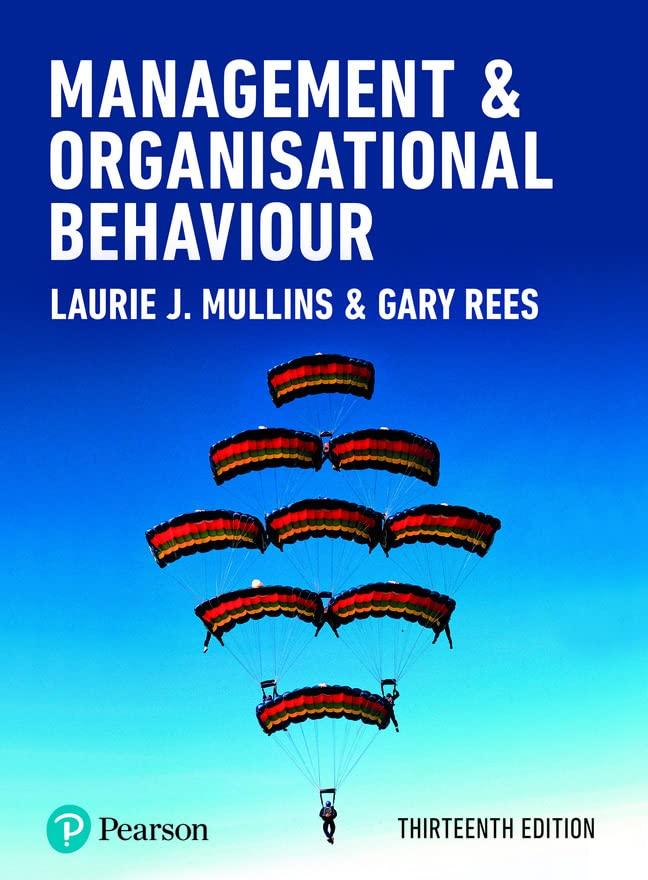The Police Service has statutory responsibility for the treatment of persons detained by them (and other agencies
Question:
The Police Service has statutory responsibility for the treatment of persons detained by them (and other agencies such as HMRC which brings people into a police station). These people must be treated in accordance with the Police & Criminal Evidence Act 1984 (PACE) that was enacted in January 1986 and any code of practice issued under the Act.
Section 39 of PACE specifies that these duties should be the duty of the custody officer at a police station.
The same section goes on to declare:
where an officer of higher rank than the custody officer gives directions . . . which are at variance with any decision or action taken by the custody officer in the performance of a duty imposed on him under this Act the matter shall be referred at once to an officer of the rank of Superintendent or above who is responsible for that police station.
There is statutory backing for the decisions and actions taken by custody officers in the performance of their duties.
PACE sets out the provisions regarding the appointment of custody officers (Section 36). Custody officers are appointed to designated police stations, which are equipped to receive and house detained persons in the conditions that PACE requires. Subject to limited exceptions all detained persons must go to a designated police station. Custody officers are appointed by the Chief Officer of Police for that area or by an officer directed by that Chief Officer of Police to do so. Importantly no police officer may be appointed a custody officer unless at least the rank of sergeant, and significantly none of the functions of a custody officer shall be performed by an officer who is involved in the investigation of an offence for which the person is in detention (and there is case law that identifies what being involved in an investigation entails).
Most forces have adopted the sergeant rank as the best suited to the custody officer role (custody officers no longer have to be a police officer). On appointment training is given in the role of sergeant and specifically custody officer duties. Custody officers, though they work for the same organisation, have an element of impartiality through the statement that they must not be involved in the investigation of an offence for which that person is detained. This allows for their decisionmaking to be non-partisan. There is an argument perhaps that for the decision-making to be completely impartial custody provisions should be independent of the police service but in practice it is argued that custody officers value their impartiality and their decision-making is reflected in this.
The Act clearly defines the process for any challenge to custody officers’ decision-making and that is by appeal to the station commander, a Superintendent.
As well as providing support for custody officers in their decision-making it also affords protection for them from rank pulling in a hierarchically structured organisation such as the police.
Custody officers deal with people’s liberty and determine whether they enter the prosecution process.
The decision to detain is a serious business and in practical terms it is taken very seriously. In the case of a person detained on the suspicion of committing a criminal offence, their decision-making in this process is subject to periodic review. In the first 24 hours of a person’s detention that review is undertaken at the 6-, 15- and 24-hour stages. Any detention beyond 24 hours requires the authority of a Superintendent and any detention beyond 36 hours requires a warrant from a court. The custody officer’s decision-making is subject to close scrutiny through the training process, accreditation process and local inspection processes.
Most importantly, it is a legal requirement now that all designated custody centres are subject to visual and audio recording, which is perhaps the ultimate scrutiny.
The arrival of visual and audio recording in custody centres was welcomed by custody officers as it saw a corresponding fall in the number of complaints against them in the charge room process. In practical terms it is rare that decisions of a custody officer are challenged by a more senior officer (a Detective Chief Inspector). The fact that these occasions are so rarely reported is evidence of the seriousness and professionalism adopted by Custody Sergeants in their decision-making process. A process that would only work with empowerment.
Questions
1. Discuss critically the extent to which you believe this case illustrates the importance and potential bene- fits of empowerment.
2. How would you relate this case to the concept of authority commensurate with responsibility?
3. Explain the importance of protection from rank pulling in any other hierarchically structured organisations.
Step by Step Answer:

Management And Organisational Behaviour
ISBN: 9781292422381
13th Edition
Authors: Laurie Mullins, Gary Rees





